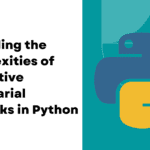Hello, adventurers of the code world! ? Ever walked into a maze and felt the thrill of each twist and turn leading you deeper into its heart? Recursive functions in C offer a similar exhilarating ride. Let’s step into this maze!
The Magical Mirror: Understanding Recursion
In fairy tales, a magic mirror reveals truths and shows new perspectives. In C, a recursive function acts like this mirror, reflecting itself to solve smaller pieces of a larger puzzle.
The Spell of a Simple Recursive Function
Let’s initiate our journey with a classic example: computing the factorial of a number.
int factorial(int n) {
if (n <= 1) {
return 1;
}
return n * factorial(n - 1);
}
Code Explanation:
- If
nis 1 or 0, the function returns 1 (base case). - Otherwise, the function calls itself with
n-1, multiplying the result byn.
The Path of Many Mirrors: Multiple Recursive Calls
Some problems invoke not one, but a series of mirrors, creating multiple paths. The Fibonacci sequence is an iconic example.
Fibonacci’s Enchanting Spiral
int fibonacci(int n) {
if (n <= 1) {
return n;
}
return fibonacci(n - 1) + fibonacci(n - 2);
}
Code Explanation:
- For
nequal to 0 or 1, the function returnsn(base case). - For larger
n, the function calls itself twice, summing the results.
The Guiding Thread: Managing Recursion’s Complexity
In the mythical Labyrinth, Theseus used a thread to navigate. In recursion, we use ‘base cases’ and ‘edge cases’ to avoid getting lost in endless loops.
The Minotaur’s Challenge: Recursion’s Pitfalls
Recursion, while elegant, harbors its own Minotaurs—challenges that lurk in its depths:
- Stack Overflow: Excessive recursion can exhaust the stack memory, causing a crash.
- Performance Hits: Without optimization, recursion can slow down execution significantly.
The Escape Route: Tail Recursion and Optimization
Just as every maze has an exit, every recursion can be optimized. Tail recursion—a form where the recursive call is the last action—enables compilers to optimize, preventing stack overflow.
int tail_factorial(int n, int accumulator) {
if (n <= 1) {
return accumulator;
}
return tail_factorial(n - 1, n * accumulator);
}
Code Explanation:
accumulatorholds the running product, which is returned as the final result in the base case.- The recursive call is the last action, enabling tail-call optimization.
Wrapping Up: The Enchanting Dance of Recursion
As our journey through the recursive labyrinth concludes, we emerge wiser and more adept. Recursion in C is a dance of elegance—a choreography where functions pirouette gracefully, invoking themselves to craft solutions that are both simple and profound.







